#to prevent the bots
Explore tagged Tumblr posts
Text
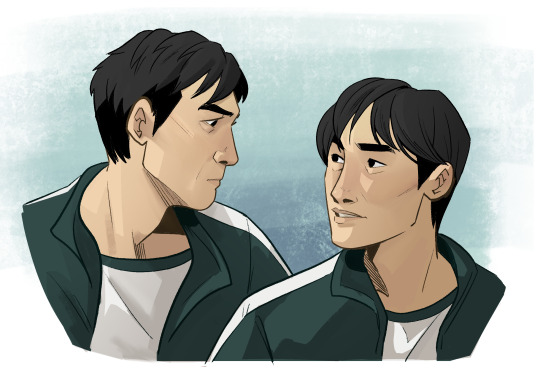
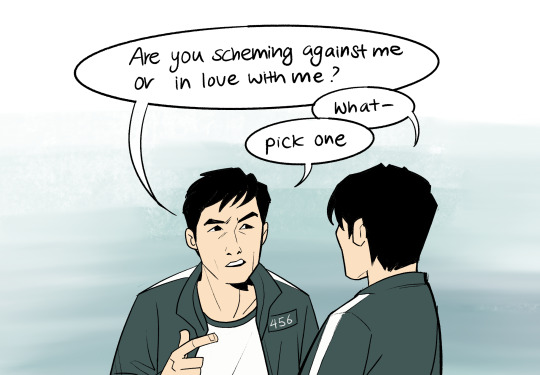
Save me toxic old man yaoi
Comic dialogue stolen blatantly from a reddit comment that I sadly couldn't find again
#seong gihun#hwang in ho#squid game#gihun x frontman#gihun x inho#gihun x young il#i am once again posting brain rot to prevent tumblr from marking me as a bot#and also if i said it once i said it a thousand times#but welcome back hannigram#god i want to draw more fan art but my commissIONS-
4K notes
·
View notes
Text
I help run a discord server for audio drama creators! If that's you and you'd like to join, here's a link: discord.gg/xkwjpz55
31 notes
·
View notes
Text
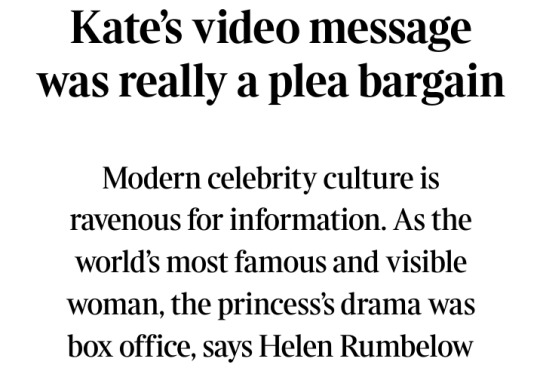

The most powerful moment of the coronation of King Charles III was not the gold glittering off carriages or epaulettes — not the pomp and show and signifiers of power.
It was precisely their opposite: when Charles shed his gold robes and stood in a thin white shirt, his frail humanity implied.
Then a screen was erected around him and, shielded, he had a private consultation with the Archbishop of Canterbury, who dabbed anointing oil with his hands on Charles’s bare breast.
"This was the most solemn and personal of moments,” Buckingham Palace said.
Charles was bare before God, in privacy, God being one of the last beings with no need to sign a non-disclosure agreement.


The Princess of Wales looked on as the screen shielded her father-in-law.
By contrast, she was at that point the most magnificent she had ever been, swathed in layer upon layer of regality, the dress, the robes, the hanging chains, headpiece and ribbons all serving to move the viewing gaze — subjects in every sense — from our awareness of Catherine Middleton with her everyday human DNA and towards the shared fiction of her transcendent queenliness.
Less than a year later, this moment is remembered with new and terrible power.
It is spring again, but it’s a time of hard Lenten moral reflection for us as a nation, in relationship to our royals, as well as an ever more voraciously unprivate modern celebrity culture.
Both the King and the princess have cancer, the latter’s disclosed by Catherine in an unprecedented video address on Friday, March 22.
Catherine’s speech was something of a plea bargain in which she traded not only her customary silence but her most personal of health ordeals in order to put an end to toxic rumours swirling online that had become in tone like an unruly mob rattling at the palace gates.
Or rattling at the figurative locks on her medical notes, with three workers at the London Clinic, where she and the King were treated, suspended and under investigation for allegedly trying to access her records (hers, it is important to note, the King’s were unmolested).

📷: Getty Images
What was so powerful about the anointing of the King was the sacredness of that space in which he could be fully human away from observation and judgment.
There should be another one-on-one consultation that is sacred, where anyone, from King to princess to pauper, can expect to be shriven in total privacy, and that is the sanctity of the medical room.
It used to be that priests were our only bound confidants, we could trust them to be privy to all our spiritual ills.
Now doctors are our secular priests: bound by law and ethics to enshrine confidentiality at the heart of the patient relationship.
As a result, our medical privacy in an age of oversharing and online surveillance feels both stranger and more necessary.
If we knew our every GP-inspected rash was to be posted on TikTok for the nation, many of us would quite literally die of embarrassment.
The King’s appointment behind the three-sided screen can now be viewed through the lens of royal illness.
The lavishly embroidered panels and expensive white shirt now replaced by the flimsy three-sided ward screen on wheels and thin hospital gown that can humble us all.
But it also enacts a principle at the very heart of becoming the monarch.
The medical-like screen is erected in the coronation to tell us there are some places the public cannot go; to tell us that there are sacredly personal moments in which a person, any person, however swathed in our projections of power, needs to be nakedly human.
Otherwise, they will go mad. We need to make sure the screens are erected around Catherine now.

Much is said, quite a lot of it by Prince Harry himself, of the dangers of the wives of the princes repeating the tragic history of their mother, Princess Diana, hunted by photographers.
He remains phobic to any hint of tabloid persecution or paparazzi chase. But this is a sideshow, even an anachronism in 2024.
He and others have not recognised how the “chase” has changed. Who needs paparazzi when there are a billion citizen hacks ready to take pictures with their phones, in case a convalescing woman nips to a Windsor farm shop with her husband?
Instead, the appetite now is not to see but to know.
The royals used to have a contract with the public: we pay for them, and in return, they give us their presence.
Nearly all of their official job is to do with surface: to show up, to put in appearances at a set number of functions, whether at the opening of parliament or the opening of a leisure centre.
But now parts of the online mob seem to be staging a coup. We want more than the surface, we want to puncture the skin barrier of the royal family and occupy from the inside.
The “fans” have become an invasive virus. The royal analogy is often that they are trapped in a gilded zoo. This new model, instead, casts the royals more as lab rats.
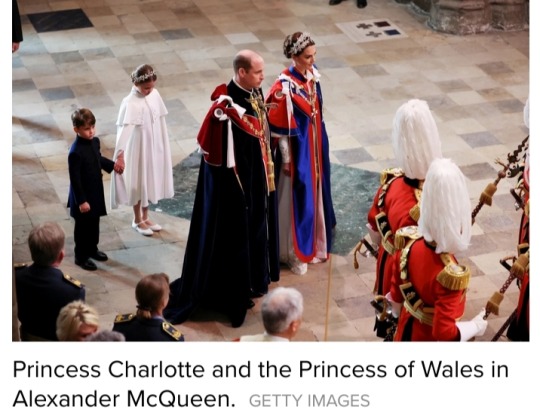
When Catherine disappeared from view in January after announcing a “planned abdominal operation,” the response from internet truthers was one of irate entitlement.
They are now the 1980s tabloids: ravening for intimacies and making stuff up when thwarted.
This wasn’t the boomer generation, who are both more respectful of the royals and more private about their own health.
It was the fortysomething mothers frustrated when they can’t track the phone location of everyone in their life; or the twentysomethings on Snap Map.
Both desperate for their personalised new Netflix season of “The Royals” to drop.
Catherine presents with such stoicism and dignity, it is easy to forget where this new invasiveness started: when she was pregnant with Prince George in December 2012 and hospitalised for extreme morning sickness.
While she was sleeping on the ward, a radio station in Australia rang the hospital switchboard pretending to be the Queen.
They broadcast the nurse’s comments about Catherine’s “retching.”
One could only find this prank funny if Catherine had already — a young, wretchedly ill, pregnant woman — been dehumanised.
George is now ten and his mother hospitalised again, and in that decade, the physical security of ill royals may have tightened but their claim to bodily autonomy seems to have weakened.
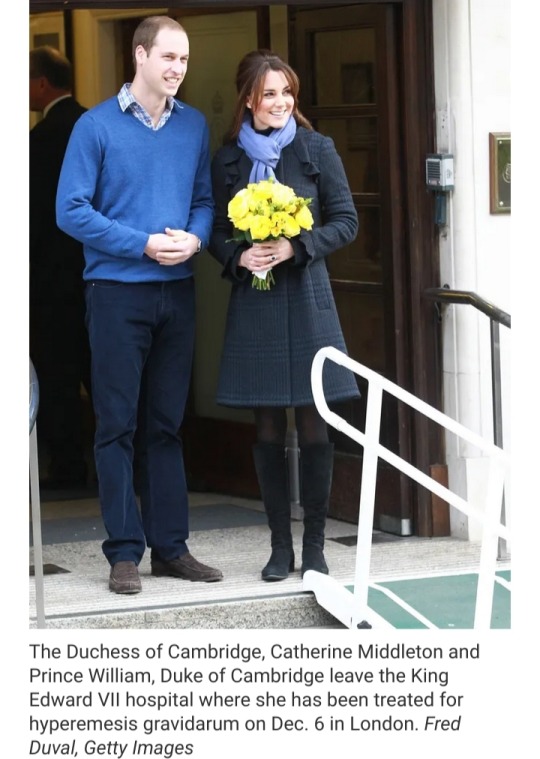
Some say Kensington Palace “brought it on themselves” by their wish for discretion; this claim is duplicitous.
The late Queen Elizabeth II became increasingly debilitated in her final years with not much detail ever given; just as her father, King George VI, died without disclosing his lung cancer.
I’m glad that the British do not subject their heads of state to the same publicised medical reports as the president of the United States; one shouldn’t have to present a stool swab to sit on the throne.
No, instead the apparent justification of all those clicking and posting conspiracy theories “worried for Catherine’s welfare” was this sinful truth.
As a beautiful, 42-year-old mother of three, her drama was more box office than the ailments of those older, a pound of her flesh was worth more.
Pity, Susan Sontag said in her 1978 book Illness as Metaphor, is close to contempt.
Back then cancer was still taboo. Those around the patient, Sontag says, “express pity but also convey contempt.”
Ask any cancer patient and they will say they don’t want pity: it is too isolating, it sets them apart, an unwanted privilege.
This is why the video plea of Catherine was one of affinity, rather than pity or privilege.
Last year, she sat in robes in Westminster Abbey at the coronation of her father-in-law, next to her future king son and future king husband.
In her video address last week, she sat on a classically English garden bench, pale, alone and in jeans, as bare of pomp as any royal can be.
No mention of kings or titles, just Diana’s ring on her hand.
Rather she gave an appeal, parent to parent, human to human, about her “huge shock” and her care for her “young family.”
And, finally, her kinship with anyone who lives in a vulnerable human body susceptible to a democratic illness like cancer, “you are not alone.”
Or, to paraphrase Richard Curtis:
“I’m just a girl, standing in front of a public, asking for some time to endure gruelling chemotherapy."
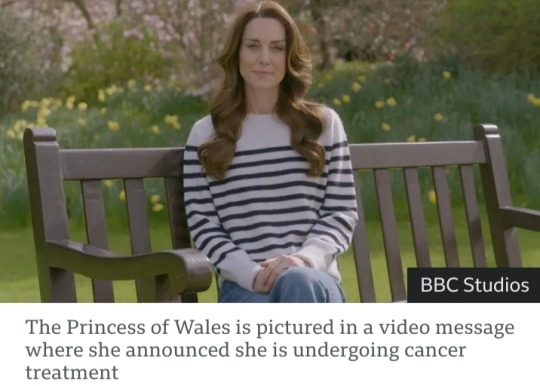
NOTE: Additional photos have been included in this article.
#King Charles III#Prince William#Prince of Wales#Princess of Wales#Catherine Princess of Wales#Catherine Middleton#Kate Middleton#British Royal Family#cancer#chemotherapy#preventative chemotherapy#social media#fake news#click farms#bots#trolls#disinformation#misinformation#viral#abdominal surgery#celebrity culture
80 notes
·
View notes
Note
A bot site called rivd has been stealing fanfiction from ao3 you need to lock your ao3 fics to only logged in users to prevent the bots from stealing your fics
I wanted to let you know so we all can prevent that bot site from stealing more
Awe nawww that’s awful :((((
I’ll consider it, but I’m not a fan of locking fics because it makes them less accessible for those who don’t have an AO3 account 🥺
#I didn’t have one for the longest time and it prevented me from reading some real cool fics#on the other hand I don’t want a bot to steal the writing#have to consider it 🥺#ghost talks
27 notes
·
View notes
Text
if I wake up to one more "please donate" bot in my inbox I'm turning anon off it's either I do that or let my intrusive thoughts win
#jorunna yappi#I'm not being dramatic abt that intrusive thought either I have something HORRIBLE I've been preventing from being said#woe is the life of someone with drastic anger issues#these bots piss me the fuck off#without fail every day I wake up to at least 1 ask in my ask box from these bots#and you KNOW it's a bot bc they all say the exact same fucking thing#head in my fucking hands
4 notes
·
View notes
Text
Maybe there's something about this I'm not understanding, but can't AI scrapers just...get an AO3 account like everyone else to continue scraping? How would archive-locking actually prevent deliberate scraping?
#i get that it prevents incidental scraping from bots crawling all of the internet#but the most recent incidents specifically targeted AO3
4 notes
·
View notes
Text
Kinda feels weird to be this excited about the Switch 2 preorders starting in less than 5 minutes when I don't have the money to even THINK about buying the Switch 2, preorder or not
#once again being a broke college student becomes my downfall#then again I did sign up for the Nintendo website's way of preordering the Switch 2 since that feels safer#maybe if I open art c*mmissi*ns right now I could save up the money...#<censoring that word to prevent bots from showing up#cloud does a ramble :3#cloud's 12am thoughts
5 notes
·
View notes
Note
Hi there. I was wondering if this board is still active. I used to write on HM/SOS/RF rp sites back in the day and really want to find a space.
Hiiiii! While the definition of active varies from person to person (and we are a mite on the slower side as we do not have any activity requirements, which might be less active than some would like), I would say we are in fact very much active in the end! We have a good many members who are enthusiastic about Rune Factory & planning things out and writing with each other. Thank you for asking & for your interest.
Re: your other inquiry - reaching out is best done via here, the askbox! We do have DMs open as well as well, but the response rate is the same whether via message or via ask, so ask is imo the best / easiest option. And on that note... you can absolutely have Rosetta, as she's still available!
Rosetta from Rune Factory: A Fantasy Harvest Moon / Rune Factory Frontier is now reserved!
#reading this over it looks a bit like a customer service response. Admin Wooly has not turned work brain off I fear.#Anyways!#updates#inquiries#btw how requesting access works is that you create the account on the forum#and then let me know when you do so i know to approve your account. i have it set to require permission to prevent bots from joining
2 notes
·
View notes
Text
Top 10 Scams Targeting Indie Musicians (and How to Avoid Them)
Making a Scene Presents Top 10 Scams Targeting Indie Musicians (and How to Avoid Them) In today’s DIY music landscape, indie musicians are entrepreneurs, marketers, and creators all at once. But with that independence comes vulnerability—and a growing army of scammers looking to profit off your ambition. Whether you’re releasing a new single, booking your first tour, or promoting your latest…
#artist scam awareness#fake A&R scam#fake booking agents#fake music awards#fake playlists#how to avoid music scams#independent artist advice#indie artist protection#indie music career tips#indie musician guide#music business tips#music contract scams#music fraud prevention#music industry red flags#music industry scams#music PR fraud#ndie musician scams#NFT music scam#pay-to-play scams#scam music managers#scam warning for musicians#social media verification scam#streaming bot fraud#streaming platform fraud#sync licensing scam
2 notes
·
View notes
Text
When the bots start @/ing me:

#caroline stole her broccoli casserole recipe and claimed it was hers#bots and scam accounts#personal#i need to check to see if there is a way for me to prevent people from @ ing me because this is getting annoying
3 notes
·
View notes
Text
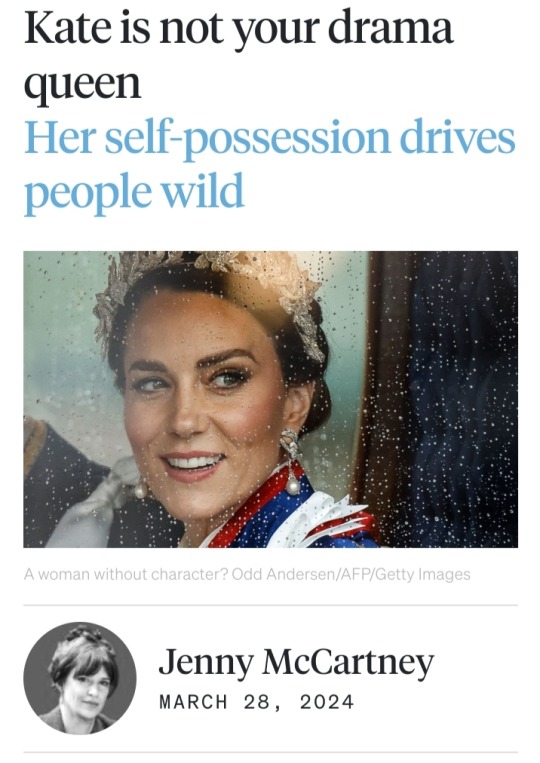
Just over a decade ago, the late novelist Hilary Mantel (6 July 1952 – 22 September 2022) delivered a lecture to an event at the London Review of Books and triggered national outrage.
In the course of a talk on “Royal Bodies,” which ranged widely across royal women from Anne Boleyn to Marie Antoinette and Princess Diana, she had made what many perceived as disparaging remarks about Kate Middleton, then the Duchess of Cambridge.
The Duchess, she said, appeared to have been “designed by a committee and built by craftsmen, with a perfect plastic smile and the spindles of her limbs hand-turned and gloss-varnished."
Indeed, Mantel said, Kate “seems to have been selected for her role of princess because she was irreproachable: as painfully thin as anyone could wish, without quirks, without oddities, without the risk of the emergence of character.”
At this, the newspapers were soon in uproar.
The prime minister David Cameron called the comments “completely misguided and completely wrong” and the Labour leader Ed Miliband agreed they were “pretty offensive.”
Mantel doggedly refused to back down, saying that her remarks had been twisted out of context, and that she was in fact writing with sympathy about the perceptions that are forcefully projected on to royal women, the cage in which they are held to be goggled at.
That was true but also perhaps not the entire truth, for there was still a perceptible trace of authorial vinegar in the portrait:
Which of us would be happy to learn, even in sympathy, that we were held at low risk for “the emergence of character”?
Royals are public as well as private figures, of course, and authors are free to hang intellectual ideas on them to try out, as designers do with clothes.
Yet while much of the lecture was sharply perceptive, I didn’t agree with the portrait of Kate.
That word “selected” had rendered her passive, when in fact her behaviour thus far had suggested both an active intelligence and an unusual degree of self-discipline.
The context of her entry into “The Firm” was different from that of other royal brides.
Unlike Diana, who had barely emerged from the fractured chrysalis of her troubled aristocratic family when she first met the much older, more worldly Prince Charles, Kate was a contemporary of Prince William’s at the University of St Andrews.
Her family background, which appeared warm and supportive, was comfortably middle-class.
She seemed generally cheerful and unruffled, even when the press was at the barbed peak of its “Waity Katie” hysteria, trying to goad Prince William into a proposal or abandonment.
After the wedding, in her approach to royal duties, she clearly took the role she had inherited with marriage seriously.
The royal whose attitude her own most resembled was the late Queen Elizabeth II, who had long understood the essential nature of the job:
To turn up to public events looking the part, intuit precisely what was needed — gravitas, fun, consolation or reassurance — and deliver it while keeping one’s personal emotions on the back burner.
This is what a monarchy demands, and the ability to act as an impeccable interpreter of the public mood, year after year, is a particular and testing art.
A few have a natural aptitude for it, but most of us do not, and would quickly find its scrutiny and restrictions intolerable.
Grace under consistent pressure is an admirable quality.
Were a ballet dancer to execute a string of flawless performances, or a pilot to conduct numerous flights without incident, it would not be deemed evidence of an absence of character: quite the opposite.
Yet in Kate — especially for those who increasingly conduct their lives online — serene self-possession seems to drive a proportion of onlookers insane: what lurks behind it, what dark secret is waiting to destroy it, how best might it be disrupted?
The uncomfortable truth is that what many people deeply crave in a young and beautiful royal wife and mother is not competence, but crack-up.

The increasingly bizarre treatment of Kate, or the idea of Kate, is connected to the most dominant phenomenon of our age: a cultural prioritising of drama over duty.
The supply of drama has spilled beyond the confines of the novel, theatre, cinema, or television to become a commodity on which our public figures are judged.
When Mantel spoke of Kate’s apparent absence of emerging “character,” she was assessing her primarily through the hungry eyes of a novelist.
In books, central female characters often generate dramatic tension by chafing against their circumstances, by the intensifying dazzle of their discontents, something that Kate refused to transmit.
In contrast, Mantel described Diana as a “carrier of myth”: Diana, publicly trapped in the disappointments of her marriage, certainly carried more plot twists than any author had a right to expect.
Unfortunately for her, the final one was her shockingly premature death.
Set against this artistic conception of “character” — distinctive qualities or flaws that, one way or another, deliver drama — is the societal judgement “of good character,” meaning someone who is broadly reliable and respected in relation to their behaviour to others.

In recent years, the electorate, in line with Neil Postman’s warning in his 1985 book, Amusing Ourselves To Death, has proved increasingly ready to select the former over the latter, even to the marked detriment of our civic health.
The former prime minister Boris Johnson instinctively understood it as his job not to deliver the detail of workable policy but to satisfy the public’s appetite for story:
“People live by narrative,” he once told UnHerd’s Tom McTague.
In the US, Donald Trump — that relentless generator of low mockery and high fury — is now running for a second term as president, after his first one ended in his supporters storming the Capitol building.
Men are often permitted to survive the frantic generation of drama: it is everyone around them who suffers.
Yet women — in art and life — have a greater tendency to be destroyed by it.
There is no strutting female equivalent of the male “hellraiser,” but rather a woman who, soaked in the crocodile tears of the tabloids, is tragically “causing concern” among friends.
Art and its audiences have always relished the restless struggle and disintegration of female characters who are, or become, unmoored from the harbour of marriage and children.
Flaubert’s Emma Bovary — her imagination inflamed by reading novels — is bored with her marriage and disenchanted with motherhood.
She seeks solace in affairs and excessive spending, the consequences of which hasten her suicide.
Zola’s Nana, a courtesan who ruthlessly captivates Parisian society, has her beguiling face eaten away by smallpox.
Janis Joplin and Amy Winehouse, immolated on their blazing talent, are hung posthumously high in the musical hall of fame, next to Sylvia Plath in the poetry section and Marilyn Monroe in cinema.
In Jean Rhys’s Good Morning, Midnight, a middle-aged English woman called Sasha Jansen, mourning an unhappy marriage and a dead child, finds herself in Paris, a vulnerable drifter seeking solace from stray men.
Rhys herself, who died at 88 after a precarious but surprisingly long life, had much in common with her literary creations.
As the writer and editor Diana Athill crisply put it:
“Jean was absolutely incapable of living, life was just hopelessly beyond her.
When she was young, she floated from man to man in a hopeless way… by the time she was old, she floated from kind woman to kind woman.”
In Rhys’s latter years — hard-drinking, irascible and impoverished — Athill and a small group of female friends formed what they called “The Jean Rhys Committee,” which met regularly to ask “what should we do next?”
Rhys’s claim to such loyalty, I suppose, was the weight of her literary talent, her ability to exert an odd kind of fascination, and the fortunate soft-heartedness of her friends.
The dramatic collided with the dutiful and was kept alive by it.
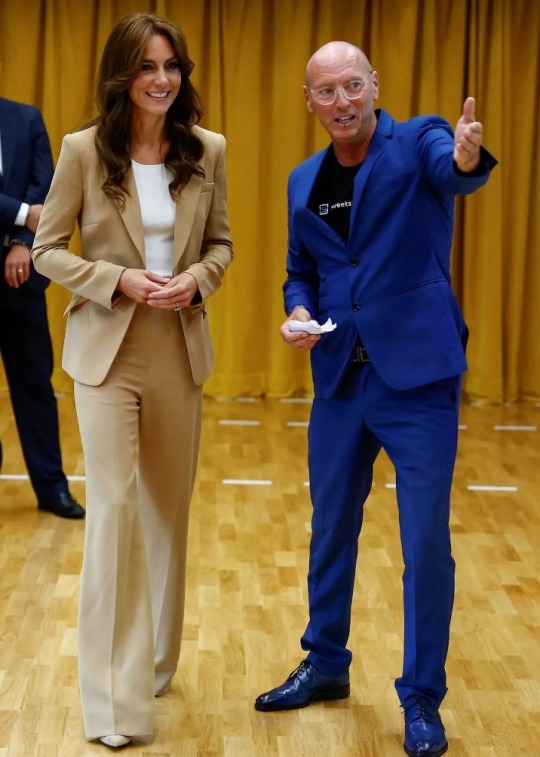
From what I can see, the Princess of Wales exists at the opposite end of the feminine spectrum from Jean Rhys.
Pinned firmly in place by her royal obligations, her wealth, her marriage, and three children, she belongs to the realm of the respectable and dutiful rather than the erratic and dramatic.
She is not a “character” in the artistic sense, nor does she desire to be, but both a survivor and upholder of an institution:
Hers is the territory of the prompt thank-you note, the kept promise, the commitment to public service, the uncomplicated pleasure in children, the stoic endurance of difficult times in the hope that better ones will come along soon.
The public senses an emotional solidity in her, and it is partly why she is held in broad esteem.
In this age of insistent self-definition, duty to others might be an unfashionable concept, but it is nonetheless one that keeps families and institutions from chaos and collapse.
With the advent of the internet, however, anyone with a keyboard can become a form of author, with the freedom to insert a toxic form of drama into real-life situations.
What was extraordinary, during the Princess of Wales’s recent health problems, is how speedily and carelessly such speculations overrode the bounds of decency.
It was already known that she had undergone major abdominal surgery and was taking time to recover.
And yet — egged on by the participation of silly celebrities and malicious US comedians — conspiracy theories about cosmetic surgery and affairs and nervous breakdowns spread like knotweed.
According to social-media researchers, these were also vigorously introduced and amplified by fake accounts set up on Twitter and TikTok, some associated with Russia-linked disinformation eager to spread the termites of mistrust and doubt in Western institutions.
Only the Princess of Wales’s revelation of cancer, which carries a testing drama all its own, served to shut up the majority of them.
Unlike these callous gossips, Mantel recognised her own complicity in dehumanising royalty.
Upon encountering the late Queen, the novelist said: “I passed my eyes over her as a cannibal views his dinner, my gaze sharp enough to pick the meat off her bones.”
The Queen looked back at her, she said, briefly hurt. Mantel warned of the way in which “cheerful curiosity can easily become cruelty” precisely as it has done in recent weeks.
Her talk concluded with a prescient instruction for those who comprehend monarchy mainly as a source of entertainment: “I’m asking us to back off and not be brutes.”
In the midst of treatment and recovery, the most hitherto stable of royal women could be forgiven a keen sense of injustice:
Her job description, it seems, must now include the ability to weather the online public’s fits of brutish mania for drama.
With its contempt for duty, and its savage appetite for story, it is hungry to chew up far more than just the Princess of Wales.
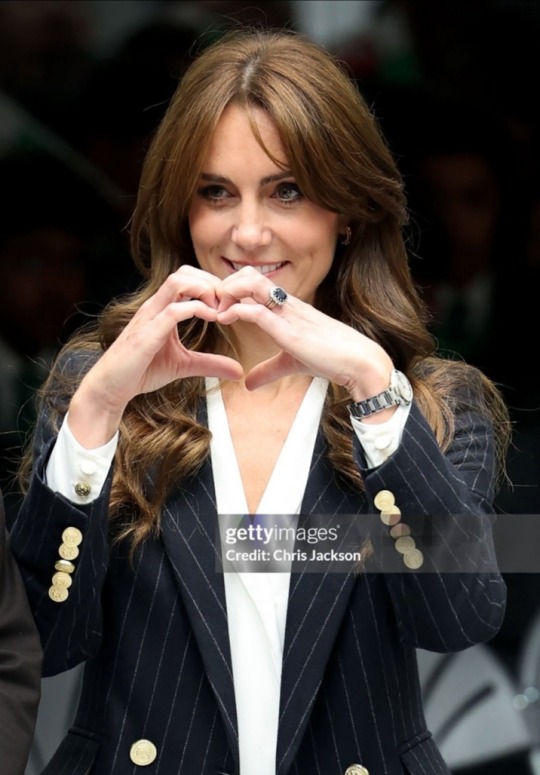
NOTE: Additional photos have been included in this article.
#Princess of Wales#Catherine Princess of Wales#Catherine Middleton#Kate Middleton#British Royal Family#cancer#chemotherapy#preventative chemotherapy#disinformation#misinformation#fake news#trolls#bots#click farms#targeted attack#malicious gossips
96 notes
·
View notes
Text

tumblr this is my wife what kind of 'feature' is this
17 notes
·
View notes
Text
Omw to make my bots codes so fucking strict to not speak about suicide positively, get romantic unless the bot is for that, etc. The death of the 14 y/o is disgusting. I hope he is resting peacefully, and that his family soon finds peace.
#Serious talk#Serious Vampz#I'll get the new code done by prolly sat bc I gotta do testing and stuff#I'm so sorry if my bots have done anything that I'm now coding to prevent to you
2 notes
·
View notes
Note
"For Yaoi Reasons"
Are You One Of Those
fuckkk what the fuck what the fuckkk
what happened to hello good morning how are you your art is nice
#i think. this is in reference to a reblog i made#of my own post#with an additional drawing#where in the tags i joked briefly about mks outfit being different for yaoi reasons#they weren't lying chat . the hate mail on this site goes crazy#I HAVEN'T EVEN DONE ANYTHING YET 😭 ARE YOU KIDDING. THIS ISN'T FAIR#can they just smell it on me.#this is like . going back in time to prevent your grandpa from being born#but it's to prevent grandpa from ever posting old man yaoi#got reblogged by a popular bot. broke 100+ notes. made friends. got hate mail.#now i only need my art reposted to instagram and i will have 100%ed social media. then i'll be free#man im not even discouraged or anything. im just so confused. dude what did i do#it's 12 am. it's past curfew in the retirement home let's just go to bed alright#text post#i wanted it immortalized forever. i'll remember you when i get 20 followers i don't know personally
6 notes
·
View notes
Text
hey there!
howdy! you might’ve found my account and wondered what all this is about? bots? extermination? what???
basically tumblr is notorious for having lots of inappropriate bots that post pornographic images, spam unrelated tags, and have links to dodgy porn sites that could most likely, contain viruses and infect your computers.
and this is an account dedicated to getting rid of them! (because my mains block list is clogged up with these lmao)
I’ll post on how to tell bots apart from real humans and what to do about them, as well as what tags they are normally found in.
Feel free to join me in this journey and help to clean up tumblr!
4 notes
·
View notes